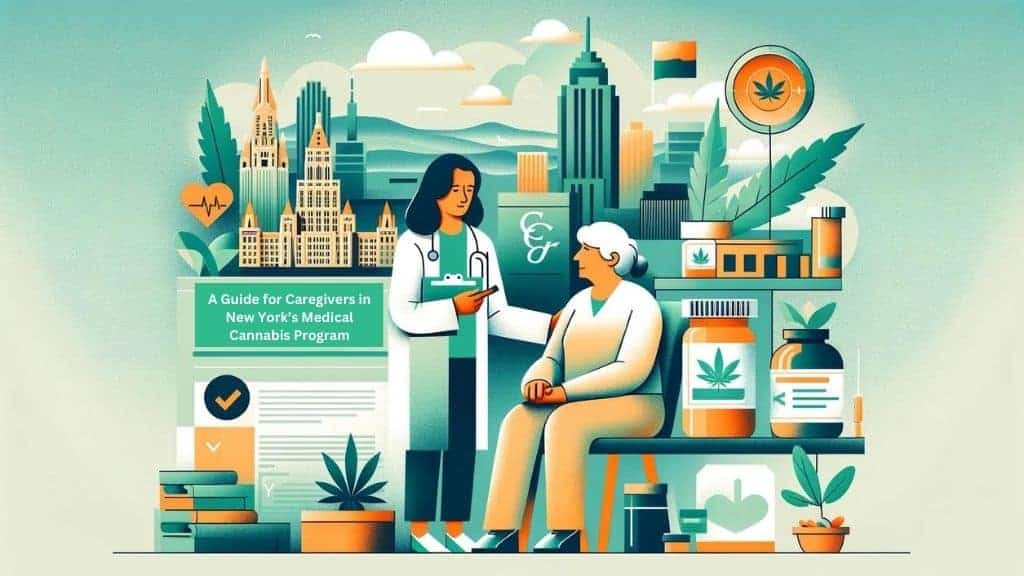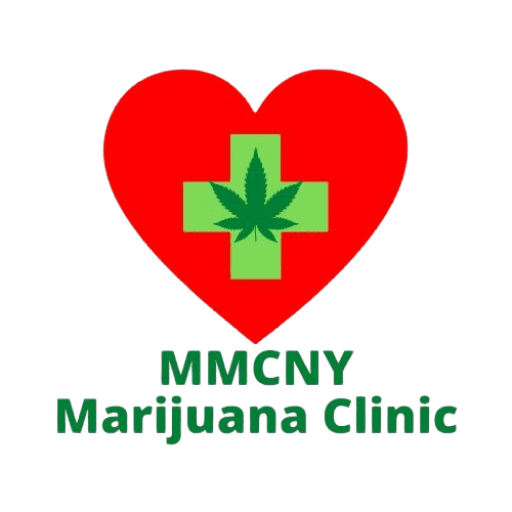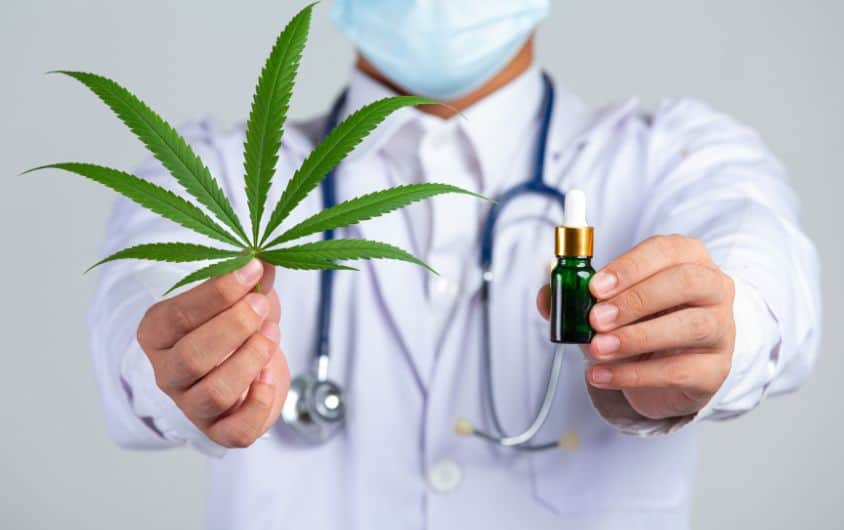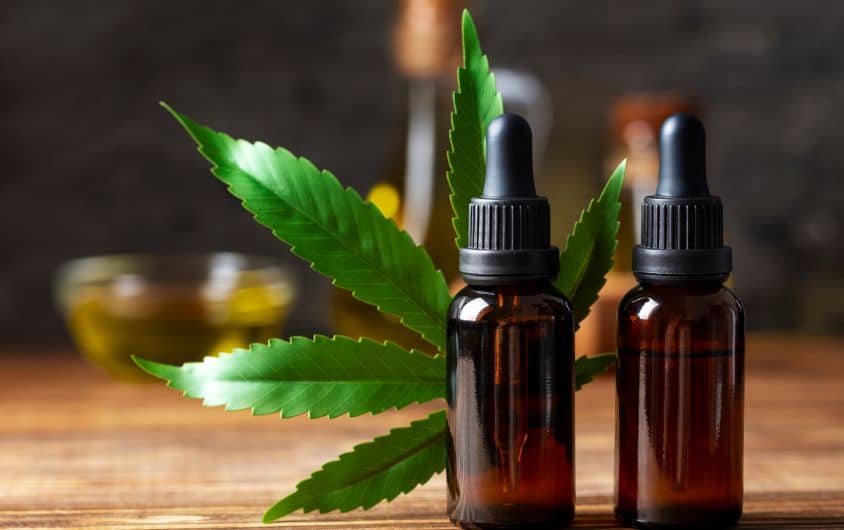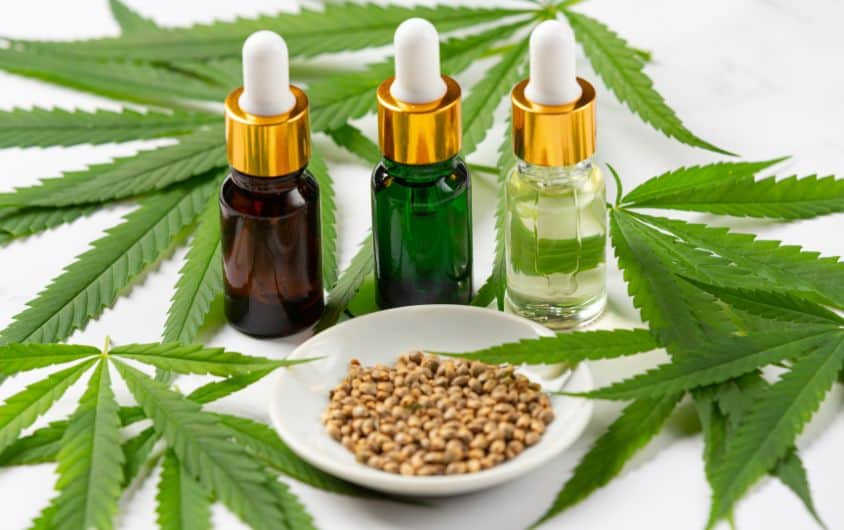In New York, caregivers play a pivotal role in the Medical Cannabis Program, acting as essential intermediaries between patients and their access to medical marijuana. As facilitators, caregivers are tasked with understanding the intricacies of medical cannabis, from legal requirements to the selection of appropriate products for patients.
New York’s Medical Cannabis Program mandates that caregivers possess a thorough knowledge of the program’s legal framework, including how to register and the conditions that qualify for treatment. Furthermore, caregivers are responsible for assisting patients in navigating the certification process, which requires an understanding of the qualifications and the healthcare providers authorized to recommend medical marijuana.
The program offers a variety of cannabis products, and caregivers must be adept at selecting the right product and administering it in compliance with New York regulations. Given the strict legal limitations on possession, transport, and public administration, caregivers must stay informed about current laws and potential interactions or side effects of cannabis use to ensure they are providing the best possible care.
This blog delves into the essential role caregivers fulfill within New York’s Medical Cannabis Program, emphasizing their responsibility to remain knowledgeable and compliant to support their patients effectively.
By exploring the legal, operational, and practical aspects of caregiving in this context, readers will gain insight into the critical attributes required to navigate New York’s medical marijuana landscape successfully.
Table of Contents
Toggle- What is the role of caregivers in New York’s Medical Cannabis Program?
- Why is it important for caregivers to be knowledgeable about medical cannabis in New York?
- What are the legal requirements for caregivers in New York’s Medical Cannabis Program?
- How can caregivers register for the Medical Cannabis Program in New York?
- Who qualifies for medical marijuana certification in New York?
- How can caregivers assist patients in obtaining medical marijuana certification in New York?
- What conditions qualify for medical marijuana treatment in New York?
- Which healthcare providers are authorized to recommend medical marijuana in New York?
- How can caregivers determine the best medical cannabis products for their patients?
- What types of medical cannabis products are available in New York?
- Where can caregivers legally purchase medical cannabis products in New York?
- How should medical cannabis be administered to patients under New York regulations?
- Can caregivers administer medical marijuana to patients in public places in New York?
- What are the guidelines for dosing medical cannabis for different conditions?
- What are the legal limitations on possessing and transporting medical cannabis in New York?
- What should caregivers know about potential side effects and interactions of medical cannabis?
- When and how do caregivers renew medical marijuana certifications for their patients in New York?
- What are the penalties for violating the rules of a designated caregiver in new york
- How can caregivers stay informed about changes in New York’s Medical Cannabis Program and regulations?
- FAQs
- Conclusion
What is the role of caregivers in New York’s Medical Cannabis Program?
In New York’s Medical Cannabis Program, caregivers are entrusted with a critical role that extends beyond mere assistance. They serve as authorized individuals who can acquire, possess, and administer medical cannabis on behalf of their designated patients. This role is particularly crucial for patients who are minors, elderly, or those with disabilities or conditions that impede their ability to personally obtain or use medical cannabis. Caregivers thus act as a vital link between the patient and their access to treatment, ensuring that those in need can benefit from the therapeutic potentials of medical cannabis without facing the complexities of the process alone.
Why is it important for caregivers to be knowledgeable about medical cannabis in New York?
The necessity for caregivers to be well-informed about medical cannabis in New York stems from the intricate nature of cannabis-based treatments. A deep understanding of the legal framework, the types of available cannabis products, their therapeutic effects, and potential side effects is essential.
This knowledge empowers caregivers to make informed decisions when assisting with product selection, determining proper dosages, and administering medication. Furthermore, being knowledgeable ensures that caregivers can navigate the regulatory environment confidently, maintaining compliance with state laws and safeguarding the well-being of the patients under their care.
What are the legal requirements for caregivers in New York’s Medical Cannabis Program?
The New York State Department of Health (DOH) outlines specific legal requirements for caregivers participating in the Medical Cannabis Program. Firstly, caregivers must be at least 21 years old and cannot be the patient’s certifying healthcare provider. They are required to register with the DOH, a process that includes a background check to ensure compliance with state regulations.
Upon approval, caregivers receive a registry ID card, which is necessary to acquire medical cannabis from state-licensed dispensaries. It’s important to note that caregivers can serve up to five patients, highlighting the program’s flexibility in accommodating the needs of multiple patients.
Caregivers must also adhere to the possession limits established by New York law, which dictate the amount of medical cannabis that can be held at any given time. These regulations are in place to prevent misuse and diversion of medical cannabis to non-patients. Compliance with these laws is paramount, as violations can lead to legal repercussions, including the revocation of the caregiver’s registration.
How can caregivers register for the Medical Cannabis Program in New York?
The process for caregivers to register for the Medical Cannabis Program in New York has been streamlined to ensure that patients requiring medical cannabis can receive their treatment with minimal barriers. As of March 2023, the emphasis has shifted towards simplifying access. Caregivers start by obtaining a medical marijuana certification from a qualified healthcare provider on behalf of the patient. This certification is crucial as it serves as the foundation for the caregiver’s registration within the program.
Caregivers must then complete their registration with the New York State Department of Health (DOH) online. The required information typically includes the caregiver’s personal details and proof of New York residency. Once the application is submitted and approved, caregivers are provided with a registration ID number.
This number is essential for purchasing medical cannabis products from licensed dispensaries across the state. It’s important to note that this process underscores the state’s commitment to making medical cannabis accessible while ensuring regulatory compliance and safety.
Who qualifies for medical marijuana certification in New York?
In a significant shift from the traditional model, New York no longer lists specific qualifying medical conditions for medical marijuana certification. This change places the discretion squarely in the hands of licensed healthcare providers.
Physicians, nurse practitioners, and physician assistants who are registered with the state’s Medical Cannabis Program have the authority to evaluate patients on an individual basis. If they determine that a patient could benefit from medical cannabis, they can issue a certification. This approach allows for a more personalized assessment of a patient’s need for medical marijuana, ensuring that those who can benefit from its therapeutic properties are not arbitrarily excluded by a predefined list of conditions.
How can caregivers assist patients in obtaining medical marijuana certification in New York?
Caregivers are instrumental in assisting patients through the certification and registration process. Their role includes identifying a qualified healthcare provider who can evaluate the patient’s eligibility for medical marijuana use. Caregivers can help by gathering medical records and any other documentation that may support the patient’s case.
Once a certification is issued, caregivers ensure that the certification details are accurately entered during the registration process with the New York State DOH. Furthermore, caregivers can educate patients on the types of medical cannabis products available, helping them make informed decisions based on the healthcare provider’s recommendations.
What conditions qualify for medical marijuana treatment in New York?
The landscape of medical marijuana in New York has undergone significant transformation, particularly with the shift in how qualifying conditions for treatment are determined. Unlike many states that have a fixed list of qualifying medical conditions for medical marijuana use, New York has adopted a more flexible approach.
As of 2022, the state removed the list of specific qualifying conditions, placing the responsibility on registered healthcare providers to assess and determine whether a patient could benefit from medical marijuana treatment. This pivotal change allows for a more personalized and patient-centric approach to healthcare, enabling providers to recommend medical marijuana based on a comprehensive evaluation of the patient’s health status and therapeutic needs.
Which healthcare providers are authorized to recommend medical marijuana in New York?
The authority to recommend medical marijuana in New York is granted to a specific cohort of healthcare professionals. This includes physicians, nurse practitioners, and physician assistants who have undergone the necessary training and are registered with the New York State Medical Marijuana Program.
These professionals are empowered to evaluate patients for medical marijuana treatment, taking into account the broad spectrum of physical and mental health conditions that could potentially benefit from cannabis therapy. Their certification signifies a critical step in the process, as it enables patients to obtain a registration ID number from the state, facilitating legal access to medical marijuana products.
How can caregivers determine the best medical cannabis products for their patients?
Caregivers play a crucial role in supporting patients through the medical marijuana treatment process. Given the wide array of medical cannabis products available in New York, determining the most suitable option for a patient requires careful consideration. Caregivers can assist in this decision-making process by:
- Understanding the Patient’s Needs: This involves a thorough discussion with the patient and their healthcare provider about the patient’s medical condition, treatment goals, and any concerns or preferences they may have regarding cannabis therapy.
- Researching Product Options: New York’s licensed dispensaries offer various forms of medical cannabis, including oils, tinctures, capsules, and more. Caregivers should familiarize themselves with these products, focusing on cannabinoid content (THC vs. CBD levels), consumption methods, and dosing recommendations.
- Consulting with Dispensary Staff: Licensed dispensary pharmacists and staff in New York are knowledgeable about their product offerings and can provide valuable guidance to caregivers on product selection, usage, and potential drug interactions or side effects.
- Monitoring and Adjusting: After initiating treatment, caregivers should closely monitor the patient’s response to the selected medical cannabis product, including efficacy and any adverse effects. Open communication with the healthcare provider is essential for adjusting the treatment plan as needed.
What types of medical cannabis products are available in New York?
New York’s Medical Cannabis Program offers a wide range of product types to accommodate the diverse needs and preferences of patients. These products include but are not limited to:
- Oral Solutions and Tinctures: Liquid forms of cannabis that are consumed orally or sublingually (under the tongue).
- Capsules and Tablets: Pre-measured, oral forms of cannabis that are easy to consume and dose.
- Vaporization Oils: Cannabis oils designed for use in vaporizers, providing a smokeless method of inhalation.
- Topicals: Cannabis-infused products such as creams, lotions, and balms applied directly to the skin for localized relief.
- Edibles and Beverages: Though availability may vary, these are ingestible products infused with cannabis.
Each product type offers different onset times and duration of effects, allowing patients and caregivers to choose the option that best suits the patient’s therapeutic needs and lifestyle.
Where can caregivers legally purchase medical cannabis products in New York?
Caregivers can legally purchase medical cannabis products on behalf of their patients at licensed dispensaries throughout New York. These dispensaries are regulated by the New York State Department of Health (DOH) and require both the caregiver and the patient to be registered with the state’s Medical Cannabis Program.
Upon receiving a medical marijuana certification from a qualified healthcare provider, patients and their caregivers are given a registration ID number. This number must be presented at the dispensary, along with the caregiver’s identification, to legally purchase medical cannabis products.
Dispensaries offer a secure, regulated environment where caregivers can obtain advice from knowledgeable staff about product selection, dosing, and administration methods tailored to the patient’s specific needs.
How should medical cannabis be administered to patients under New York regulations?
The administration of medical cannabis in New York is subject to state regulations designed to ensure patient safety and compliance. Key guidelines include:
- Dosage: Caregivers should follow the healthcare provider’s recommendations for dosing, which is determined based on the patient’s condition, previous cannabis use, and potential drug interactions. Dosage may need to be adjusted based on the patient’s response to treatment.
- Methods of Administration: The choice of administration method depends on the product type and the patient’s preferences or specific medical needs. Options include oral ingestion, sublingual absorption, inhalation via vaporization, and topical application.
- Record Keeping: Caregivers are encouraged to keep detailed records of the cannabis strains used, dosages, administration times, and effects observed. This information is valuable for managing the patient’s treatment plan and making any necessary adjustments.
- Compliance with Public Consumption Laws: Despite the legalization of recreational marijuana use, caregivers and patients must adhere to New York’s regulations regarding public consumption. Medical cannabis should be administered in a manner consistent with state laws, respecting designated smoking areas and private property restrictions.
Can caregivers administer medical marijuana to patients in public places in New York?
In New York, the administration of medical marijuana by caregivers in public places is governed by specific regulations that align with both the state’s medical cannabis program and the broader legal framework established for cannabis use. With the legalization of recreational marijuana use and possession, the state has adopted a more liberal stance towards cannabis consumption.
However, public consumption of cannabis, whether for recreational or medical purposes, is subject to local laws and regulations that prohibit smoking or vaping in certain public areas, such as schools, workplaces, and areas where tobacco smoking is banned.
Caregivers must exercise discretion and consider privacy and respect for others when administering medical marijuana to patients in public. It is advisable to opt for non-inhalation forms of administration, such as oral or topical products, when in public spaces to comply with restrictions and to maintain the dignity and privacy of the patient.
What are the guidelines for dosing medical cannabis for different conditions?
The guidelines for dosing medical cannabis in New York are not one-size-fits-all and require a personalized approach based on the patient’s specific condition, tolerance, and response to treatment. Since the state has removed the list of qualifying medical conditions, it is up to the certifying healthcare provider to recommend medical cannabis and provide initial dosing guidelines.
Caregivers should start with the lowest possible dose suggested by the healthcare provider and monitor the patient’s response, adjusting the dose as necessary. The process of finding the optimal dose involves careful observation and communication with the patient and their healthcare provider, considering factors such as the method of administration, the concentration of THC and CBD in the product, and the patient’s medical history.
What are the legal limitations on possessing and transporting medical cannabis in New York?
The legal limitations on possessing and transporting medical cannabis in New York are designed to ensure that the program serves its intended medical purposes while preventing diversion and misuse. Patients and their caregivers are allowed to possess a 60-day supply of medical cannabis, as determined by the certifying healthcare provider. The exact amount and form of cannabis permitted depend on the patient’s certification and the specific recommendations made by the healthcare provider.
Transporting medical cannabis must be done in a manner that respects state laws regarding cannabis transportation. Products should be kept in their original packaging with labels intact, and caregivers should carry the patient’s medical marijuana certification or registration ID number when transporting cannabis products. This ensures that caregivers can demonstrate the legal basis for possessing medical cannabis if questioned by law enforcement.
What should caregivers know about potential side effects and interactions of medical cannabis?
The administration of medical cannabis, like any therapeutic intervention, comes with the potential for side effects and interactions with other medications. Caregivers play a crucial role in monitoring and managing these aspects of medical cannabis use to ensure the safety and well-being of patients.
- Potential Side Effects: While medical cannabis is known for its therapeutic benefits, caregivers should be aware of possible side effects such as dry mouth, dizziness, drowsiness, euphoria, and in some cases, anxiety or paranoia. The occurrence and intensity of these side effects can vary based on the dosage, the method of administration, and the patient’s individual response to cannabis.
- Interactions with Other Medications: Medical cannabis can interact with various medications, either enhancing or diminishing their effects. For example, cannabis may increase the sedative effects of certain medications like benzodiazepines or opioids, posing risks of enhanced drowsiness or respiratory depression. Therefore, it’s imperative for caregivers to maintain open communication with the patient’s healthcare provider, discussing all medications and supplements the patient is taking to avoid potential adverse interactions.
- Monitoring and Reporting: Caregivers should closely monitor the patient’s response to medical cannabis treatment, noting any side effects or changes in symptom management. Reporting these observations to the healthcare provider is vital for adjusting the treatment plan as needed to ensure the optimal therapeutic outcome.
When and how do caregivers renew medical marijuana certifications for their patients in New York?
In New York, the process for renewing medical marijuana certifications ensures that patients continue to receive necessary care without interruption. The certification issued by a qualified doctor is valid for a period determined by the doctor, but not exceeding one year. Here’s how caregivers can manage the renewal process:
- Timing: Begin the renewal process well before the current certification expires. This timing helps prevent any gap in the patient’s access to medical cannabis.
- Consultation with Healthcare Provider: Schedule a follow-up consultation with the patient’s certifying doctor to assess the patient’s continued need for medical cannabis treatment. This appointment is an opportunity to discuss the patient’s progress, any side effects experienced, and potential adjustments to the treatment plan.
- Renewal Process: If the healthcare provider determines that medical cannabis remains an appropriate treatment, they will issue a new medical marijuana certification. The renewal process also involves updating the patient’s registration with the New York State Department of Health, using the new certification details to extend the patient’s and caregiver’s access to medical cannabis.
- Maintaining Documentation: Keep detailed records of all medical appointments, certifications, and correspondences related to the patient’s medical cannabis treatment. This documentation is crucial for ensuring compliance with state regulations and facilitating any necessary discussions with healthcare providers or regulatory authorities.
What are the penalties for violating the rules of a designated caregiver in new york
The penalties for violating the rules as a designated caregiver can be significant and vary depending on the nature and severity of the violation. While specific penalties are subject to change and can depend on the discretion of regulatory authorities, common consequences may include:
- Revocation of Caregiver Registration: Violating the program’s rules can lead to the immediate revocation of a caregiver’s registration, prohibiting them from purchasing, possessing, or administering medical cannabis on behalf of their designated patients.
- Criminal Charges: If a caregiver is found to be diverting medical cannabis (selling or giving it away to someone other than the designated patient), they could face criminal charges. New York State law treats the illegal sale and distribution of cannabis seriously, and penalties can range from fines to imprisonment, depending on the quantity involved and the specific circumstances.
- Fines: Violations may also result in monetary fines. The amount can vary, depending on the nature of the violation and whether it is a first-time or repeat offense.
- Restrictions on Future Participation: Individuals who have violated the rules may face restrictions or be barred from participating in the medical cannabis program in the future, either as a caregiver or as a patient.
- Civil Penalties: In some cases, violators may be subject to civil penalties, including lawsuits if their actions have caused harm to others.
It’s important for caregivers to thoroughly understand and comply with all the rules and regulations set forth by the New York State Department of Health’s Medical Marijuana Program. This includes ensuring that they only purchase medical cannabis from licensed dispensaries, keep accurate records of purchases, and securely store medical cannabis to prevent unauthorized access.
How can caregivers stay informed about changes in New York’s Medical Cannabis Program and regulations?
For caregivers involved in New York’s Medical Cannabis Program, staying informed about regulatory changes and program updates is paramount. This ensures that caregivers can provide the best support to their patients, navigating the complexities of medical cannabis with confidence and compliance. Here’s how caregivers can stay updated:
- Subscribe to Official Communications: The New York State Department of Health (DOH) offers newsletters and alerts specifically designed to keep participants informed about the Medical Cannabis Program. Subscribing to these communications is a direct line to new information, regulatory changes, and important announcements.
- Attend Educational Seminars and Workshops: Various organizations and healthcare institutions periodically host seminars and workshops focused on medical cannabis laws, therapeutic uses, and caregiving strategies. These events are invaluable for gaining insights, asking questions, and networking with professionals and other caregivers.
- Utilize Online Resources: The DOH’s official website is a comprehensive resource for current regulations, FAQs, and guidance documents related to medical cannabis in New York. Additionally, reputable medical cannabis advocacy groups and educational platforms offer a wealth of information tailored to caregivers.
FAQs
1. What is the role of caregivers in the medical marijuana program in New York?
Caregivers are authorized individuals who can assist registered patients in purchasing, possessing, and administering medical marijuana. A caregiver must be designated by the patient and approved by the state to act on behalf of a patient who is a minor or who is not physically able to manage their medical marijuana treatment.
2. How can a patient qualify for medical marijuana in New York?
As of 2022, New York does not have a predefined list of qualifying medical conditions for medical marijuana. Instead, certified medical marijuana doctors evaluate patients on a case-by-case basis to decide if they can benefit from medical marijuana treatment.
3. Do patients in New York still need a medical marijuana card?
No, patients no longer need a medical marijuana card as of March 2023. They require a medical marijuana certification from a qualified doctor. Once certified, patients are automatically registered with the state and given a registration ID number, which they can use to purchase medical marijuana products.
4. How can a caregiver be designated and registered in New York?
A patient must designate a caregiver during their medical marijuana certification process. The caregiver then applies to the state, providing necessary documentation and passing any required background checks. Once approved, the caregiver receives a registration ID number similar to the patient.
5. Are there any specific requirements for caregivers in New York?
Yes, caregivers must be at least 21 years old, unless special approval is granted. They must also be a resident of New York and cannot be the patient’s certifying healthcare provider. Caregivers are subject to a background check and must comply with state regulations.
6. Can caregivers assist more than one patient?
Yes, caregivers can assist more than one patient if necessary. However, they must receive separate approvals and registration ID numbers for each patient they intend to assist.
7. How can caregivers purchase medical marijuana in New York?
Caregivers can purchase medical marijuana from state-licensed dispensaries. They must present their caregiver registration ID number and the patient’s registration ID number or certification when making a purchase.
8. What types of medical marijuana products can be purchased in New York?
Caregivers can purchase various forms of medical marijuana, including oils, tinctures, capsules, vapes, and topicals. The availability of specific products varies by dispensary.
9. Is recreational marijuana use legal in New York?
Yes, as of March 31, 2021, recreational marijuana use and possession became legal in New York for adults 21 years of age and older. However, medical marijuana patients and their caregivers may have access to products and dosages specifically tailored for therapeutic use.
Conclusion
In conclusion, the role of caregivers in New York’s medical marijuana program is crucial, enabling patients to navigate the complexities of obtaining and administering their treatment with ease and legality. With the state’s evolving stance on medical and recreational marijuana use, caregivers are afforded a significant responsibility to assist those in need, based on a thorough evaluation by certified medical professionals rather than a fixed list of conditions.
The shift away from a medical marijuana card to a certification system simplifies the process, ensuring that patients have quicker access to their treatments. Caregivers must remain informed and compliant with New York’s regulations to fulfill their duties effectively.
As the landscape of medical marijuana continues to change, staying updated on legal requirements and available resources will empower caregivers to provide the best possible care, making a profound difference in the lives of patients relying on medical marijuana for therapeutic purposes.
Resources
https://cannabis.ny.gov/designated-caregivers
https://cannabis.ny.gov/medical-cannabis-program-faqs
https://cannabis.ny.gov/system/files/documents/2023/08/patient-and-caregiver-registry-id-guide.pdf
https://cannabis.ny.gov/system/files/documents/2023/07/caregiver-registration-instructions.pdf
https://cannabis.ny.gov/system/files/documents/2022/01/designated_caregiver_facility_form_0_0.pdf

